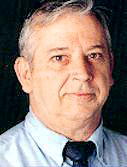One of the signs of a decadent society is corruption of the language. Our corruption comes mainly from politicians, journalists and, of course, advertising copywriters. No word is more corrupted than "hero."
After the attacks against the World Trade Center and the Pentagon, there was an orgy of calling everybody who wears a uniform a "hero." Wearing a uniform and doing one’s duty does not make one a hero. Using the word promiscuously, of course, cheapens it to the point that it is worthless when applied to the real McCoy.
Because of Pentagon lies, a young woman from West Virginia, Jessica Lynch, was branded a heroine and given a Bronze Star, even though she did nothing but get knocked unconscious in an accident while her unit was fleeing from an ambush. She never pointed her gun, much less fired it. To her credit, when she got the opportunity, she told the truth instead of perpetuating Pentagon lies.
To be a genuine hero, one must do something outstanding — something, to use the old military phrase, "above and beyond the call of duty." In World War I, for example, Alvin York knocked out five machine-gun bunkers by shooting men in the forehead as they tried to fire their weapons. In all, he killed 25 men with his rifle, another six who charged him, and then captured, single-handedly, more than 200 other soldiers. That’s heroic.
Similarly in World War II, Audie Murphy, though badly wounded, stopped a German counterattack by standing on the back of a burning tank and firing its machine gun while directing artillery fire. In all, Murphy killed about 255 German soldiers single-handedly. That, too, is heroic behavior.
Merely showing up and getting shot at is not being heroic. Even getting killed doesn’t make one a hero. The business of war is the business of killing and dying. All of that is simply doing one’s duty. It would help if more people would read the official accounts of the deeds that have earned the Medal of Honor. In most cases, you will see that the men who received them, often posthumously, did indeed go way above and beyond the call of duty. It is an insult to the precious few to call everybody a hero just because they wear a uniform.
The novelist Ayn Rand made an interesting point once. She said the words we use and our moral approval are a kind of currency we use to reward virtue. If we fail to withhold our moral approval from people who don’t deserve it, then in effect we make it counterfeit and thus cheat those people who do deserve it.
In other words, if you’ll smile and shake hands with any lout, bum or criminal, what good is your handshake and smile? If you’re going to call heroes people who just happen to be soldiers, police officers and firefighters, what are you going to call those individuals who do something really outstanding?
Rand said something else interesting once. She said the way to kill greatness was not to attack it, but to simply reward mediocrity. We certainly do that in our society. If you put a chimpanzee on live television 20 minutes a day, five days a week, within a fortnight it would be national celebrity. A young woman who in smarter days would have been called what she is — a spoiled slut — achieves worldwide fame just by videotaping herself copulating with some guy.
No nation can do great things once its people lose the ability to define greatness and to distinguish between the truly outstanding and the mediocre. That is just as important as knowing the difference between right and wrong.
I do not intend to imply that people who do the unpleasant jobs, like policing and soldiering, don’t deserve respect. They certainly do. But we should reserve the word "hero" for those who perform extraordinary and outstanding deeds.
Moreover, we should recognize that greatness is the difficult, the rare and the hard-to-achieve. It should not be confused with celebrity and money, which more often than not are the results of luck and mass marketing, if not nepotism and, in some fields, strategic immorality.
 Charley Reese [send him mail] has been a journalist for 49 years, reporting on everything from sports to politics. From 1969—71, he worked as a campaign staffer for gubernatorial, senatorial and congressional races in several states. He was an editor, assistant to the publisher, and columnist for the Orlando Sentinel from 1971 to 2001. He now writes a syndicated column which is carried on LewRockwell.com. Reese served two years active duty in the U.S. Army as a tank gunner. Write to Charley Reese at P.O. Box 2446, Orlando, FL 32802.
Charley Reese [send him mail] has been a journalist for 49 years, reporting on everything from sports to politics. From 1969—71, he worked as a campaign staffer for gubernatorial, senatorial and congressional races in several states. He was an editor, assistant to the publisher, and columnist for the Orlando Sentinel from 1971 to 2001. He now writes a syndicated column which is carried on LewRockwell.com. Reese served two years active duty in the U.S. Army as a tank gunner. Write to Charley Reese at P.O. Box 2446, Orlando, FL 32802.



